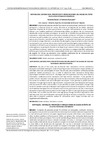Identificador persistente para citar o vincular este elemento:
https://accedacris.ulpgc.es/jspui/handle/10553/19879
| Título: | Motivación, satisfacción, percepción y creencias sobre las causas del éxito en atletas veteranos españoles | Autores/as: | Zarauz, Antonio Ruiz-Juan, Francisco |
Clasificación UNESCO: | 61 Psicología 241106 Fisiología del ejercicio |
Palabras clave: | Atletas veteranos Motivación Éxito |
Fecha de publicación: | 2016 | Publicación seriada: | Revista Iberoamericana de Psicologia del Ejercicio y el Deporte | Resumen: | El objetivo del presente estudio fue conocer las motivaciones, satisfacción intrínseca, percepción y creencias sobre las causas del éxito en el deporte de los atletas veteranos españoles (mayores de 35 años) que entrenan y compiten habitualmente en pista. También, obtener unos modelos predictivos suficientemente sólidos, por género, de sus motivaciones atendiendo a estas variables psicológicas. Se partió de la hipótesis de que debía existir baja amotivación, moderada motivación extrínseca y elevada motivación intrínseca. La motivación intrínseca se podría predecir por puntuar alto en orientación a la tarea, esfuerzo y diversión y bajo en aburrimiento y uso de técnicas de engaño. La motivación extrínseca, por puntuar alto en orientación al ego, diversión y uso de técnicas de engaño y bajo en esfuerzo y aburrimiento. La amotivación, por puntuar alto en aburrimiento y técnicas de engaño y bajo en diversión. The aim of this study was to discover their motivations, intrinsic satisfaction, perception and beliefs relating to causes of sporting success of the Spanish master athletes (35 and older) who train and compete on track. The aim was also to establish sufficiently reliable predictive models according to sex, in order to determine their motivations taking these psychological variables into account. We began with the hypothesis that they must have lowamotivation, moderate extrinsic motivation and high intrinsic motivation. It was possible to predict intrinsic motivation through high scores for task orientation, effort and enjoyment and low scores for boredom and use of deception techniques. It was possible to predict extrinsic motivation through high scores for ego orientation, enjoyment and use of deception techniques and lowscores for effort and boredom. It was possible to predict amotivation through high scores for boredom and use of deception techniques and low scores for enjoyment. | URI: | https://accedacris.ulpgc.es/handle/10553/19879 | ISSN: | 1886-8576 | Fuente: | Revista Iberoamericana de Psicología del Ejercicio y el Deporte [ISSN 1886-8576], v. 11 (1), p. 37-46. |
| Colección: | Rev. Iberoam. psicol. ejerc. deporte. 2016. v.11, n.1 Artículos |
Visitas
72
actualizado el 24-may-2024
Descargas
363
actualizado el 24-may-2024
Google ScholarTM
Verifica
Comparte
Exporta metadatos
Los elementos en ULPGC accedaCRIS están protegidos por derechos de autor con todos los derechos reservados, a menos que se indique lo contrario.
